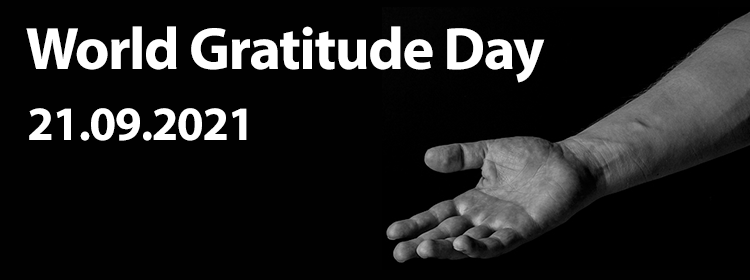
Tuesday 21 September 2021, is World Gratitude Day
In March 2019, I published my first paperback book: 142 Days of Gratitude that changed my life forever
It is part memoir, part self-help, part business book all underpinned by science and philosophy.
In it I wrote a chapter about the moral case for gratitude. Given .....


New Article Email Notification